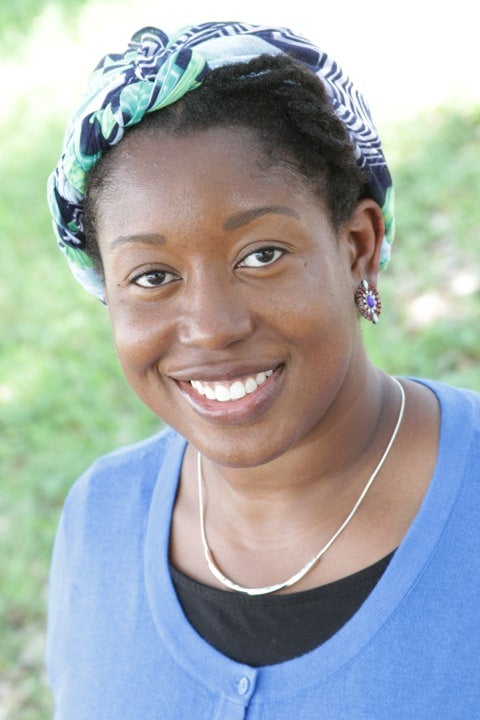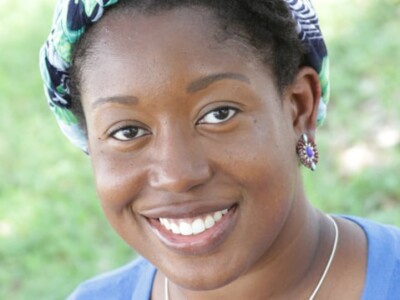A conversation with Tianca Crocker at the start of 2018 Digital Inclusion Week (May 7-11)
Have you tried going about your normal day without using technology to connect? Leaving social media completely aside, these are a few things you will have difficulty doing: find out when the next bus is coming, answer email, schedule an appointment, search and apply for a job, pay a bill, do your homework, take a GED test, find out a practitioner.
While only a revealing experiment for some, going about life with poor or no digital connectivity is a fact for millions of Americans.

“The populations who lack connectivity are often already disadvantaged in some other aspect. They are often low-income groups, minorities, new immigrants, people with disabilities… as social workers, we are already working with these populations,” said Tianca Crocker, who has recently completed her doctorate at the Steve Hicks School of Social Work with a dissertation that explores technology as a conduit and platform for economic opportunity.
Crocker has been passionate about digital inclusion since she first connected to the Internet in her native Virginia.
“When we talk about digital inclusion we mean all the activities needed to ensure that everyone has equal access to information and communication technology,” Crocker explained. “So it means not only access to hardware like computes but also to the Internet, to viable connection speeds, and to the skills needed to effectively use all of it.”
Crocker saw the plight of Austinites without connection from up-close in 2016, when she was a fellow at Austin Free-Net, a nonprofit organization dedicated to providing technology training and computer access to the community in free labs located across the city.
“We had regular lab visitors and people who found us in times of a digital resource emergency. Even with temperatures of 100 degrees during the summer, visitors made their way to the labs to get online for a few hours. They applied for jobs, searched for resources that were only available in digital format, connected to their case mangers or probation officers… many of them hopscotched around from public libraries to public outdoors spaces connected to the city’s wireless mesh network in order to maintain access,” she said.
Crocker later joined the national conversation around digital inclusion through a fellowship with the National Digital Inclusion Alliance. She worked with colleagues to produce a guidebook to help community-wide coalitions promote access to affordable high-speed home broadband, appropriate devices, digital literacy training and tech support for underserved residents.
“There is much good work done at the local level around digital inclusion, which is very fortunate because many of the federal-level initiatives of the Obama administration, such as Lifeline modernization, have stalled or been rolled back under the current administration. So it’s great to see people acting locally, talking with their mayors and council members about what digital inclusion means for their communities, and coming up with plans to advance it,” Crocker said.
In her dissertation, Crocker examined how technology can help communities foster economic opportunities from three different angles. From a community angle, she looked at Unlocking the Connection, a partnership between Google Fiber, the Housing Authority of the City of Austin, and local nonprofits to bring free internet home connection to public housing residents. From a financial literacy angle, she researched what online banking means for low-income residents of public housing. And finally, from an education angle, she worked with a nationally representative sample of middle and high school students to find out what kind of access to technology they had and how such access was associated with academic performance.
Having recently defended her dissertation, Crocker will be graduating in May and then heading to the University of North Carolina-Charlotte, where she will join the social work department as an assistant professor.
“I am excited to get started at UNC-Charlotte later this summer and continue my research on digital inclusion and how to better connect people to technology to address inequality. This is still a relatively new field of research and I want us to get it right,” she said.
By Andrea Campetella. Posted May 7, 2018.


